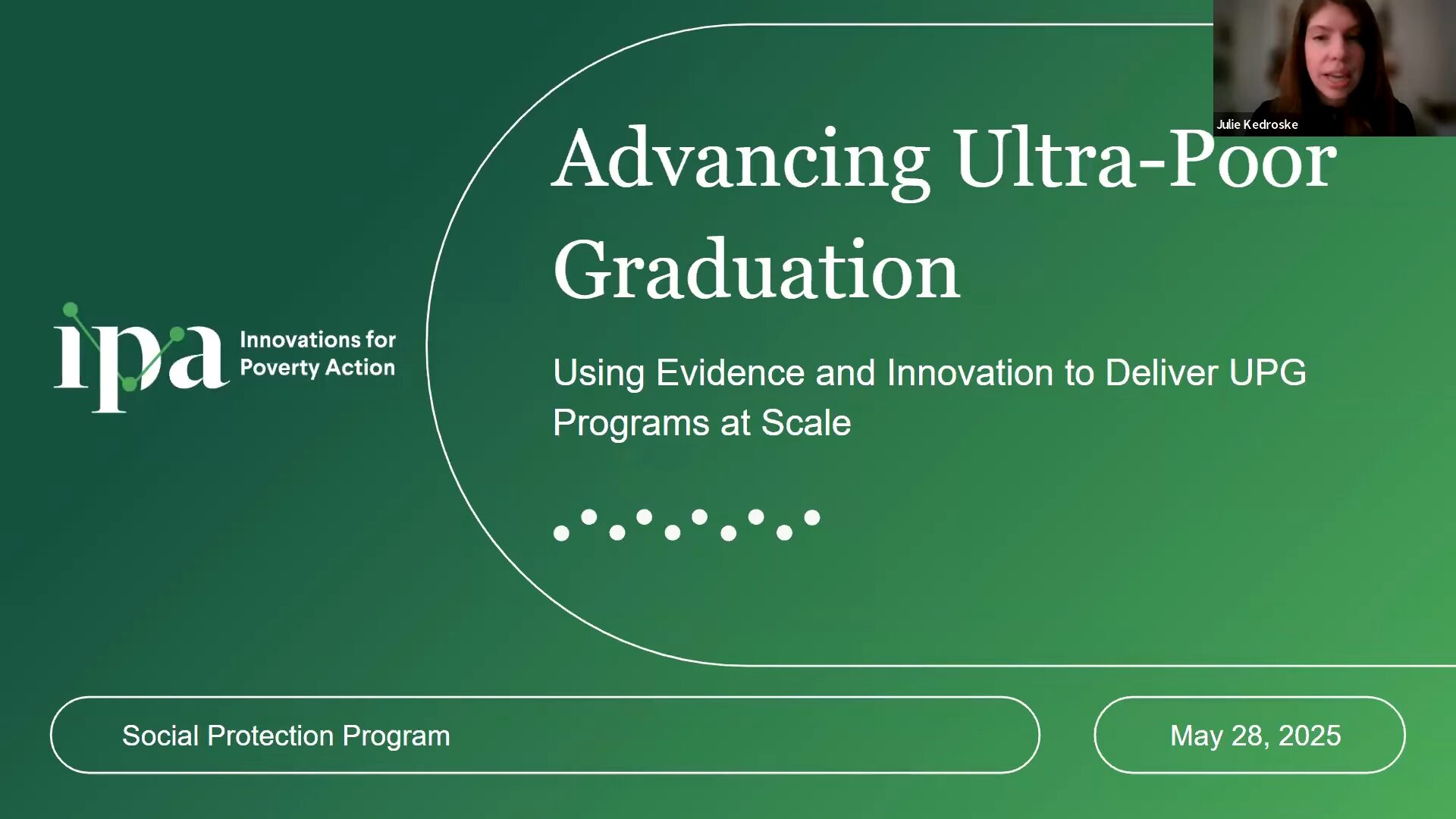Advancing Ultra-Poor Graduation: Using Evidence and Innovation to Deliver UPG Programs at Scale (Innovations for Poverty Action)
By BRAC UPGI • May 28, 2025 • 2 minute read

The webinar was originally hosted and published by Innovations for Poverty Action (IPA).
IPA and the Gates Foundation are collaborating to advance meaningful and rigorous evidence on the Ultra-Poor Graduation (UPG) approach and its adaptations and innovations. UPG programs provide households with a holistic set of services including livelihood trainings, productive asset transfers, consumption support, access to savings, basic health services, and life skills coaching, generally over 1-2 years, and are one of the most effective and rigorously evaluated anti-poverty interventions used by governments and implementers to date.
Towards the goal of developing the research priorities for scaling the next wave of UPG programs, IPA and the Gates Foundation jointly hosted a webinar to spur discussion and drive investment in remaining evidence gaps and promising innovations for UPG on the path to scale. The webinar took place on Wednesday, May 28, 2025 from 9-10 AM EDT.
During the webinar, IPA’s Social Protection Program Director, Julie Kedroske, along with Cara Myers, Program Officer at the Gates Foundation’s Women’s Economic Empowerment Gender Equality Division, chaired a panel of experts in ultra-poor graduation. Panelists included:
- Oriana Bandiera, Sir Anthony Atkinson Chair in Economics at the London School of Economics;
- Peter Rockers, Associate Professor at Boston University School of Public Health;
- Gregory Chen, Managing Director of the Ultra-Poor Graduation Initiative (UPGI) at BRAC International;
- Leah Okero, Kenya Country Director at Village Enterprise; and
- Shawn Cheung, Founder and CEO of Raising the Village.
The panel discussed evidence gaps and recent research on key design and delivery adaptations, contributions to the global advocacy agenda for evidence-based UPG policies, and positioned the future work of the UPG communities of practice as it relates to the scaling agenda. The panelists ended the discussion with an open Q&A session.

